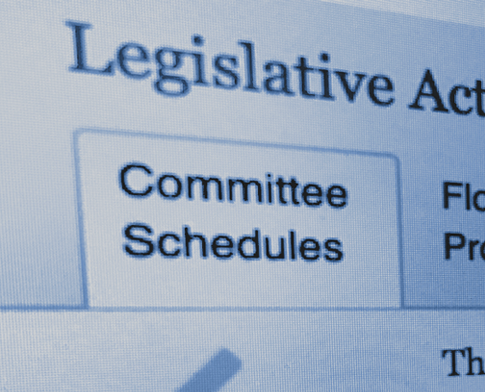Trade Update (September 7)
Section 232
Last week (29 Aug), President Trump released proclamations detailing procedures for US companies who had contracts for large infrastructure projects in place before March 2018 to request product exclusions to import steel from Argentina, Brazil, and South Korea and aluminum from Argentina. Senator Pat Toomey (R-PA) praised Trump’s decision to ease import quotas for these companies. He has frequently spoken out against Trump’s tariffs and co-sponsored Senator Corker’s (R-TN) bill that would require Congressional approval before a President can adjust imports under Section 232 (S. 3010). Toomey said, “While this is a step in the right direction, these companies and their workers will still be at a competitive disadvantage as they will be required to pay tariffs instead of being able to freely buy the materials needed for their operations. It is time for Congress to re-assert its constitutional authority on trade matters.”[i]
House Ways and Means Trade Subcommittee Ranking Member Rep. Bill Pascrell (D-NJ), introduced H. Res 1018, which would require the President to provide the House of Representatives with “any and all documents in draft or final form, including reports, memos, spreadsheets, and slide deck presentations” that relate to the President’s decisions to impose tariffs on steel and aluminum imports under Section 232 of the Trade Expansion Act of 1962. While Chairman Kevin Brady (R-TX-08) opposed the resolution, he used the opportunity to again call on Trump to meet with Chinese President Xi Jinping to end the trade war.[ii] The Committee voted to send the non-binding resolution to the House floor without recommendation.
Miscellaneous Tariff Bill
On Tuesday (4 Sept), the House passed the bipartisan H.R. 4318, “Miscellaneous Tariff Bill Act of 2018.” House Speaker Paul Ryan (R-WI-01) applauded the passage of the bill and said, “this means a more level playing field [for American manufacturers], and it keeps costs down, which is good news for workers and consumers.”[iii] The bill amends the Harmonized Tariff Schedule (HTS) by temporarily reducing tariffs on over 1600 product lines that are unavailable in America. The bill has been sent to President Trump to sign into law.
US – Korea Free Trade Agreement (KORUS FTA)
The US Trade Representative (USTR) published the agreed outcomes from the negotiations to modify KORUS. The publication ends the US domestic consultation process and now Korea must begin its own domestic procedures to amend the agreement. After that, the documents will be finalized for signature, and the countries will need to “execute further procedures to bring the outcomes into force.”[iv]
NAFTA
Mexico and the US completed their bilateral discussions on 27 August. The updated NAFTA increased the auto content from the NAFTA region from 62.5 percent to 75 percent. It also improves labor requirements by requiring 40 to 45 percent of auto content be manufactured by workers earning at least $16 per hour. The US dropped the sunset clause. Instead, the deal will have a 16-year lifespan with reviews scheduled every six years. One issue that may complicate negotiations with Canada is the elimination of dispute settlement panels for certain anti-dumping cases.[v]
Canada re-joined the negotiations soon after Trump announced the successful negotiation of a new NAFTA, which he called “The United States-Mexico Trade Agreement.”[vi] However, the three countries were unable to come to an agreement in such a short time period, leaving questions about the approval process. If an agreement was reached by the end of August, it would allow Congress to review and pass the agreement before November’s midterm elections and would ensure the agreement is in place before Mexican President-elect Andres Manual Lopez Obardor takes office in December. Despite not having a trilateral deal in place, USTR announced last Friday (31 Aug) that the President notified Congress “of his intent to sign a trade agreement with Mexico – and Canada, if it is willing – 90 days from now.”[vii]
Canada and the US have been in bilateral discussions all week but continue to disagree over contentious issues regarding dairy quotas, protection for Canadian media companies, and dispute resolution processes. Canada also wants a permanent exemption from the steel and aluminum tariffs, but Foreign Minister Freeland has told reporters that “Section 232” has not been included in the recent NAFTA talks.[viii]
US Supreme Court Nomination Hearing
Supreme Court nominee Brett Kavanaugh testified before the Senate Judiciary Committee this past week. Kavanaugh, a judge on the United States Court of Appeals for the Circuit of the District of Columbia, answered questions regarding his past political experience, from his time as an attorney to Ken Starr during former President Bill Clinton’s impeachment hearings to his role as White House staff secretary during the George W. Bush administration. Democrats unsuccessfully urged Chairman Chuck Grassley (R-IA) to delay the hearings to ensure they could review over 42,000 pages of documents on Kavanaugh’s voting record since his judicial appointment in 2006, which were released just hours before the hearings began. Senate Majority Leader Mitch McConnell (R-KY) said he believed Kavanaugh would be on the Supreme Court by October. Democrats questioned Kavanaugh on the precedent of landmark abortion decision Roe v. Wade, Kavanaugh’s judicial independence from President Trump, and if he sought any inquiries related to Special Counsel Robert S. Mueller III’s investigation. Republicans, meanwhile, addressed Kavanaugh’s views on religious liberties and applauded his community involvement and judicial integrity.
[i] “Toomey Lauds the Administration’s Action to Ease Quotas on Steel and Aluminum Imports.” Pat Toomey, Senate.gov. 31 Aug 2018. https://www.toomey.senate.gov/?p=op_ed&id=2247
[ii] “Chairman Brady Opening Statement at Markup of Bipartisan Health Bills.” House Ways and Means, Washington, D.C. 5 Sept 2018. https://waysandmeans.house.gov/chairman-brady-opening-statement-at-markup-of-bipartisan-health-bills/
[iii] “Congress Passes Bipartisan Miscellaneous Tariff Bill.” Speaker Paul Ryan. 4 Sept 2018. https://www.speaker.gov/press-release/congress-passes-bipartisan-miscellaneous-tariff-bill
[iv] “USTR Published Agreed Outcomes from US-Korea FTA Amendment and Modification Negotiations.” USTR. 3 Sept 2018. https://ustr.gov/about-us/policy-offices/press-office/press-releases/2018/september/ustr-publishes-agreed-outcomes-us
[v] “U.S., Mexico reach NAFTA deal, turn up pressure on Canada.” Reuters, Washington. 27 Aug 2018. https://www.reuters.com/article/us-trade-nafta/u-s-mexico-reach-nafta-deal-turn-up-pressure-on-canada-idUSKCN1LC1E7
[vi] “US and Mexico reach a trade deal, paving the way to replace NAFTA.” CNBC. 27 Aug 2018. https://www.reuters.com/article/us-trade-nafta/u-s-mexico-reach-nafta-deal-turn-up-pressure-on-canada-idUSKCN1LC1E7
[vii] “USTR Statement on Trade Negotiations with Mexico and Canada.” USTR. 31 Aug 2018. https://ustr.gov/about-us/policy-offices/press-office/press-releases/2018/september/joint-media-statement-aem-ustr
[viii] “U.S.-Canada trade talks grind on, but ‘final’ issues unresolved.” Reuters, Washington. 6 Sept 2018. https://www.reuters.com/article/us-trade-nafta/nafta-talks-make-progress-u-s-canadian-officials-to-work-into-night-idUSKCN1LL0CM
HOUSE.GOV
The Week Ahead
For the main events of the next week and more, go straight to the key events on the house.gov website.
SENATE.GOV
The Week Ahead
For the main events of the next week and more, go straight to the key events on the senate.gov website.


